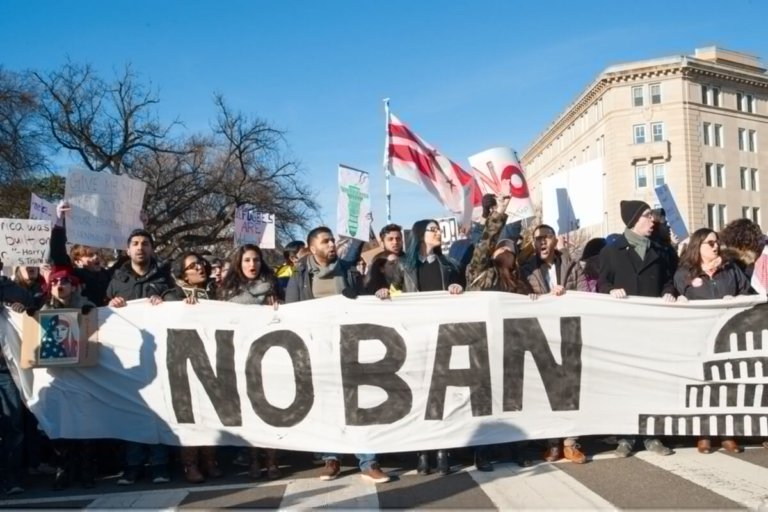
On Jan 31, the US announced it would be extending its controversial travel ban to another six countries effective February 22. This will bring the number of countries affected by the ban to 13.
This would prevent most citizens of Nigeria, Eritrea, Myanmar and Kyrgyzstan from working and living in the US, throwing all hope for permanent residency out the window. Additionally, people from Tanzania and Sudan would be banned altogether from participating in the green card lottery.
According to President Trump, these countries were selected for their poor compliance with vetting and information standards, and risks of terrorism. It is an extension of Executive Order 13769, which bans citizens of Iran, Libya, Somalia, Syria, Yemen and North Korea — and occasionally, Venezuelan government officials.
However, Democrats and human rights activists have rebuked it as an act of racial discrimination. It is seen as a political reelection move for President Trump, who built his 2016 campaign on anti-immigration promises.

Representative Ilhan Omar speaks during a news conference outside of the US Capitol on Jan 27, 2020 in Washington, DC. Senate and House Democrats are calling for the passage of the NO BAN Act to end President Trump’s travel ban which they call discriminatory. Source: AFP/Sarah Silbiger
The risk to higher education
The number of international students in the US hit an all-time high last year, contributing US$44.7 billion to its economy. Besides the anticipated blow to global business, the higher education sector is expected to be hardest hit by the incoming travel ban extension.
Nigerian students alone spent US$514 million on US higher education in the past academic year. Graduates from this country have proven to be valuable assets to the national workforce, as first-and-second generation Nigerian Americans are better educated and more likely to hold professional jobs than the general US population.
President of Morgan State University David Wilson told NPR that this student exchange not only benefits immigrants but US students too. Foreign students are seen as a booming demographic in historically-black colleges and universities. Most of them pay their own way.
“When we are able to bring these international students from all walks of the world to our campuses, it really enables domestic students to be in environments now where they understand different cultures,” he said.
More than half of America’s top tech companies were founded by immigrants or the children of immigrants.
How many future innovators will be kept from contributing to our prosperity due to Trump’s travel ban and class-based green card restrictions?
— Ro Khanna (@RoKhanna) February 16, 2020
‘A pretext for covert racism’
Last year, the American Council of Education (ACE) submitted a brief to the US Supreme Court to examine President Trump’s third travel ban on Muslim-majority countries. It emphasised that the ban would deter international students and scholars from studying, teaching or researching in the US, thus closing the country off to the global flow of knowledge and skills.
Human rights activists and hopeful immigrants have also voiced their concerns. Nigerian-American human rights activist Opal Tometi has coined the term #AfricaBan because “combined, it impacts nearly a quarter of the entire population of the continent of Africa”.
In her opinion piece for CNN, she wrote “As research by New America has shown, it’s largely been US-based loners who have committed acts of terrorism, not immigrants. What many of us have noted is that for the Trump administration, claims about national security are too often a pretext for covert racism.”
Liked this? Then you’ll love…
Two years after travel ban, visa troubles continue to spook students
Trump travel ban: What will happen to international students’ visa status?







